Mechanical Keyboards, Studio Headphones, and Beyond When building a high-end PC, it's...
What’s Best for High-Performance Rigs?
If you're building or upgrading a high-performance PC in Australia, one of the most critical — and often most debated — decisions you'll face is whether to go with liquid cooling or air cooling for your system.
Whether you're chasing peak gaming performance, diving into 3D rendering, or simply want a quiet, powerful rig that stays cool under pressure, the cooling method you choose will have a big impact on temperature control, aesthetics, noise levels, and overall longevity of your components.
So which is better — air or liquid? The answer depends on your needs, budget, and even the Aussie climate you live in. Let’s break it down.
The Basics: What Are Air and Liquid Cooling?
At its core, cooling a PC is about removing heat from the CPU (and sometimes GPU) to maintain optimal operating temperatures. If your components overheat, you can expect performance throttling, system instability, or even long-term damage.
Air cooling uses a heat sink and one or more fans to draw heat away from your processor. It's the most traditional method and comes in various sizes and performance levels — from basic stock coolers to massive dual-fan towers designed for overclocking.
Liquid cooling, on the other hand, uses a closed-loop system with a water block, pump, tubing, and a radiator. It transfers heat from the CPU to the liquid, which is then cooled by fans attached to the radiator before the fluid cycles back through.
While both methods get the job done, their efficiency, complexity, and appeal differ in key ways.
Air Cooling: Reliable and Cost-Effective
For most gamers and general users, air cooling is more than enough — especially if you're not planning to overclock heavily. It's simple to install, easier to maintain, and usually more affordable. You don’t have to worry about pump failures or coolant leaks, and modern tower coolers are remarkably efficient.
Here in Australia, where summer temperatures can soar, high-quality air coolers with larger heatsinks and dual fans still perform reliably, especially when paired with good airflow in your case.
Brands like Noctua and DeepCool have earned a loyal following among Aussie PC builders for their near-silent operation and exceptional cooling power. If you're looking for a solid air cooling option, many of our custom-built gaming PCs come with upgrade paths for premium air coolers tailored to your performance needs.
That said, high-end air coolers can be bulky and may limit your RAM clearance or case compatibility, especially in compact builds. Aesthetically, they're also more utilitarian — they get the job done but may not offer the sleek visuals some users are after.
Liquid Cooling: Performance Meets Aesthetics
If you’re building a performance-focused rig — say with an Intel i9 or AMD Ryzen 9 — or you're venturing into overclocking, liquid cooling might be the better choice. It’s highly efficient at transferring heat and tends to keep your CPU running at lower temperatures, even under sustained loads.
Liquid cooling also tends to be quieter under pressure because the radiator and fans are usually mounted on the case, away from the CPU. For content creators, streamers, or anyone working in quiet studio environments, this reduced noise can be a big plus.
There's also the aesthetic factor. Let’s be honest — liquid-cooled setups just look amazing. Whether you're using a 240mm, 280mm or 360mm AIO (all-in-one) system with RGB lighting, the visual appeal of a liquid-cooled PC is undeniable. It's a popular choice among Aussie gamers who want both performance and a clean, modern design for their battle station.
At Aussie Custom Computers, we offer a range of liquid-cooled custom PCs built with premium AIOs from trusted brands like Corsair, NZXT, and Cooler Master. These systems are fully stress-tested to ensure long-term reliability — even in hotter states like QLD or WA where ambient temperatures can be a real factor.
However, there are some caveats. Liquid cooling is more complex to install, and while AIOs are sealed and low-maintenance, there's still a small risk of pump failure or leakage over time. They also tend to be more expensive, so budget-conscious builders may need to weigh performance against cost.
Cooling and the Australian Climate
Let’s not forget the Aussie climate. If you're based in hotter regions or planning to keep your rig in a room that lacks strong air conditioning, cooling becomes even more important. Liquid cooling systems generally cope better with heat spikes, keeping your CPU at more stable temps during 40°C+ heatwaves.
That said, proper airflow in your case and quality thermal paste can go a long way with either cooling method — and the right fan configuration can make or break a cooling system, no matter how premium it is.
So, Which Should You Choose?
If you're building a budget or mid-range rig and don't plan to overclock, air cooling will likely serve you well. It's reliable, cost-effective, and requires less maintenance.
If you're aiming for top-tier performance, quieter operation, or just want the visual polish of a high-end gaming setup, liquid cooling offers better thermal performance — especially under heavy load or in warmer climates.
Ultimately, both are viable. The best choice depends on your performance goals, aesthetic preferences, and how much you're willing to spend. Not sure where to start? Check out our PC Builder Tool to customise your next rig with the cooling solution that’s right for you.
FAQs: Liquid vs Air Cooling
1. Is liquid cooling worth it for gaming?
If you're pushing your system with demanding games or want to overclock your CPU, liquid cooling can help maintain lower temperatures and quieter performance. It's also a solid choice for aesthetic-focused builds.
2. Do liquid coolers require maintenance?
Most AIOs (All-In-One liquid coolers) are sealed and don’t require user maintenance. However, it’s smart to check your system for dust buildup and ensure your fans and pump are functioning over time.
3. Is air cooling enough for high-end CPUs?
Yes — especially if you choose a quality cooler. Brands like Noctua and be quiet! make air coolers capable of handling CPUs like the Ryzen 7 or Intel i7 even under moderate overclocking conditions.
4. Which cooling method is quieter?
Generally, liquid cooling is quieter under load because heat is dispersed more efficiently, and radiator fans don't have to work as hard. But high-quality air coolers can be whisper-quiet too.
5. What’s better for Australian summers?
Liquid cooling tends to handle sustained high ambient temperatures better, especially during long gaming or rendering sessions. But with proper case airflow and a quality cooler, air-cooled systems can still thrive.
Final Thoughts
Whether you're cooling your next custom gaming PC or high-performance workstation, both air and liquid cooling have their strengths. Air cooling offers simplicity and reliability at a lower cost. Liquid cooling provides better performance and lower noise in most demanding scenarios — with a style factor that can elevate your entire setup.
If you’re not sure which one is best for your next build, reach out to our team at Aussie Custom Computers. We’ll help you design a system that stays cool, runs fast, and looks incredible — wherever you are in Australia.


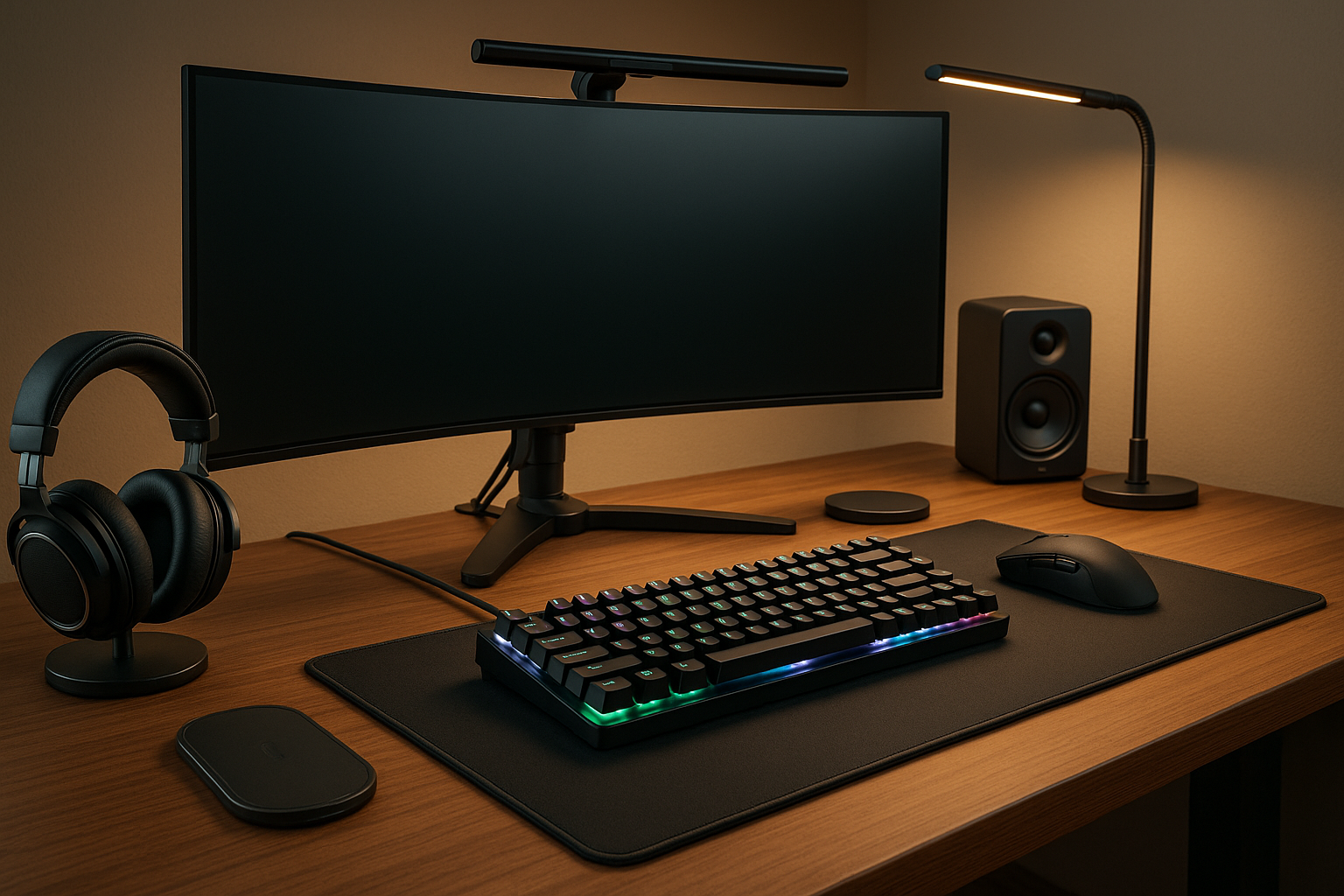
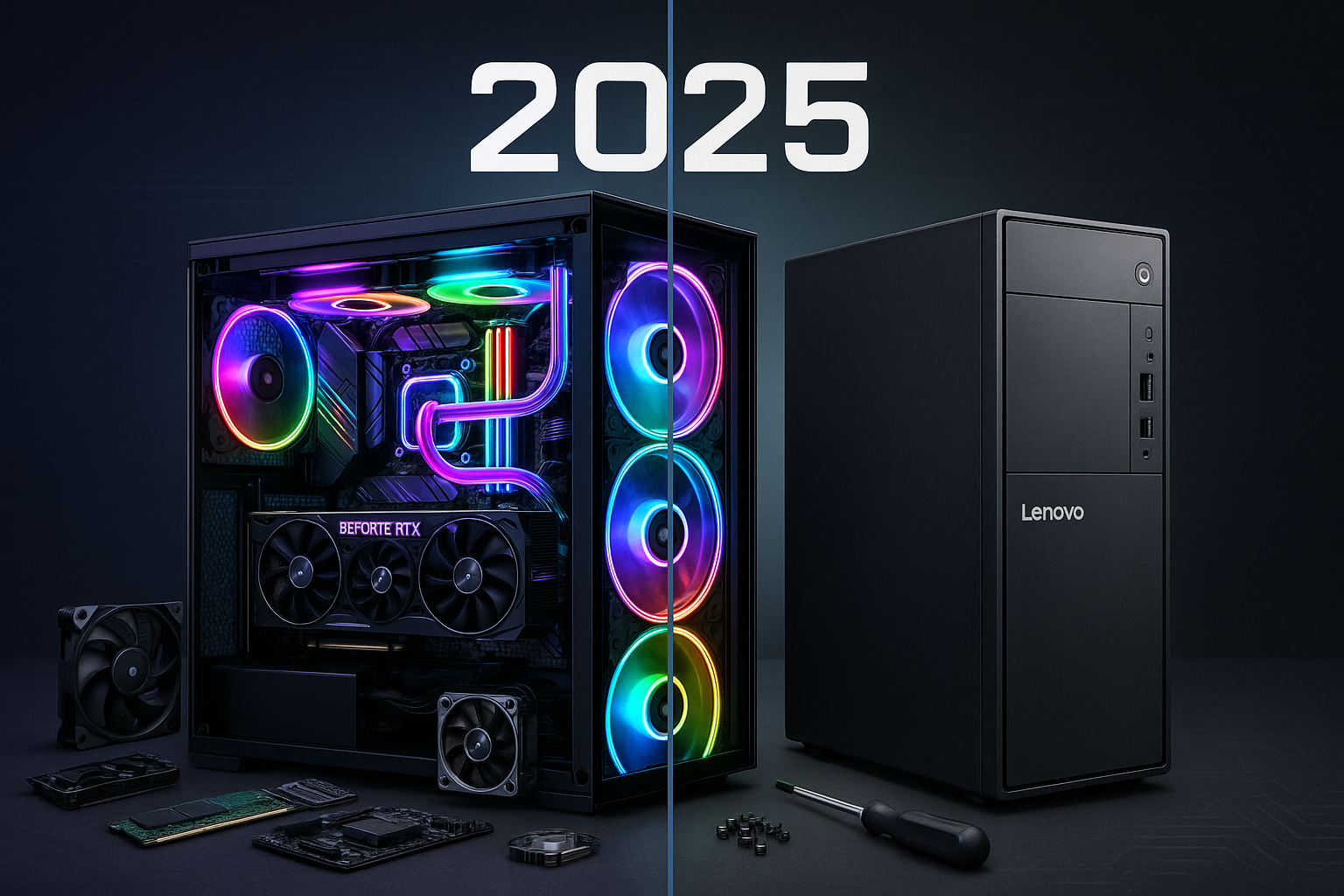
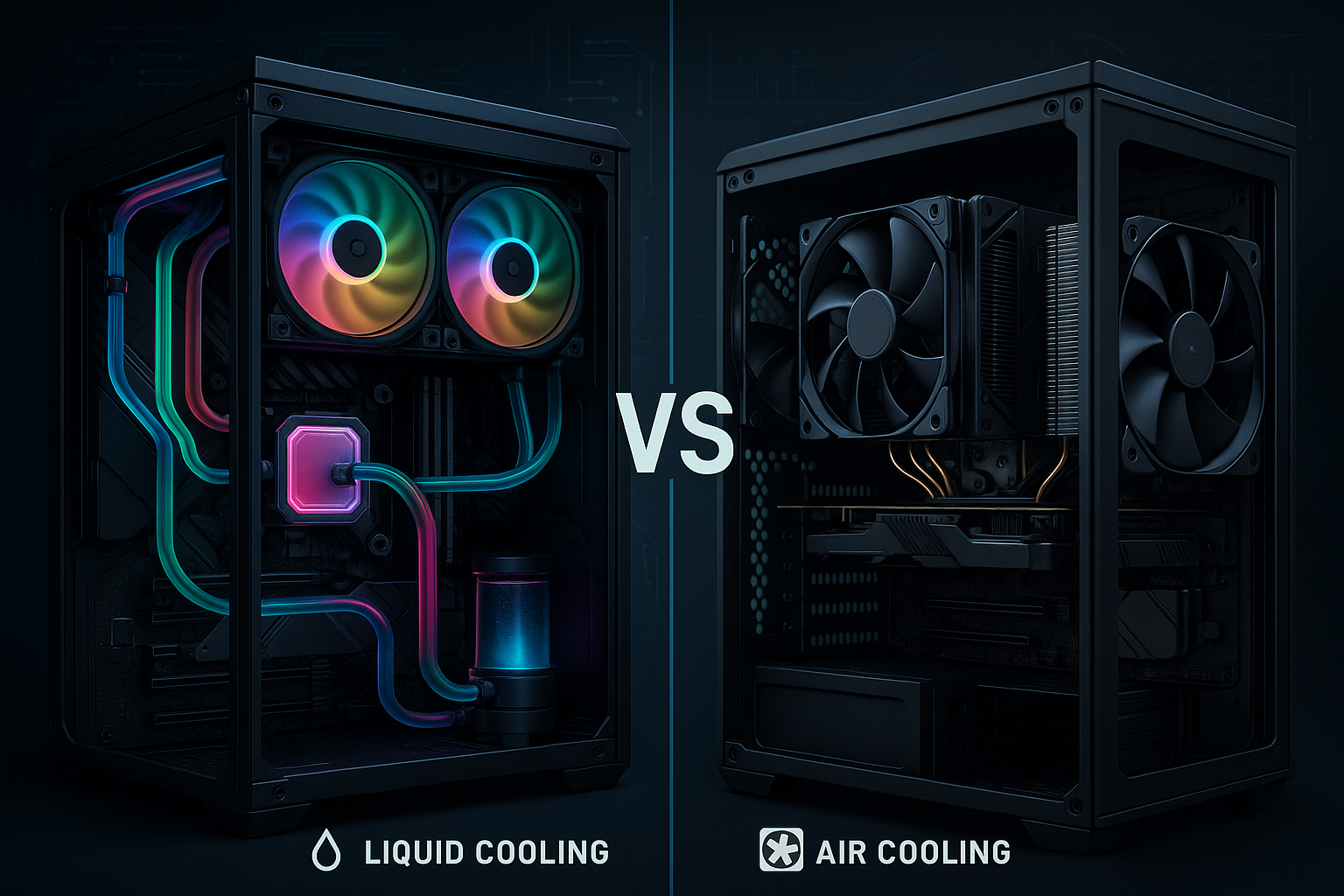
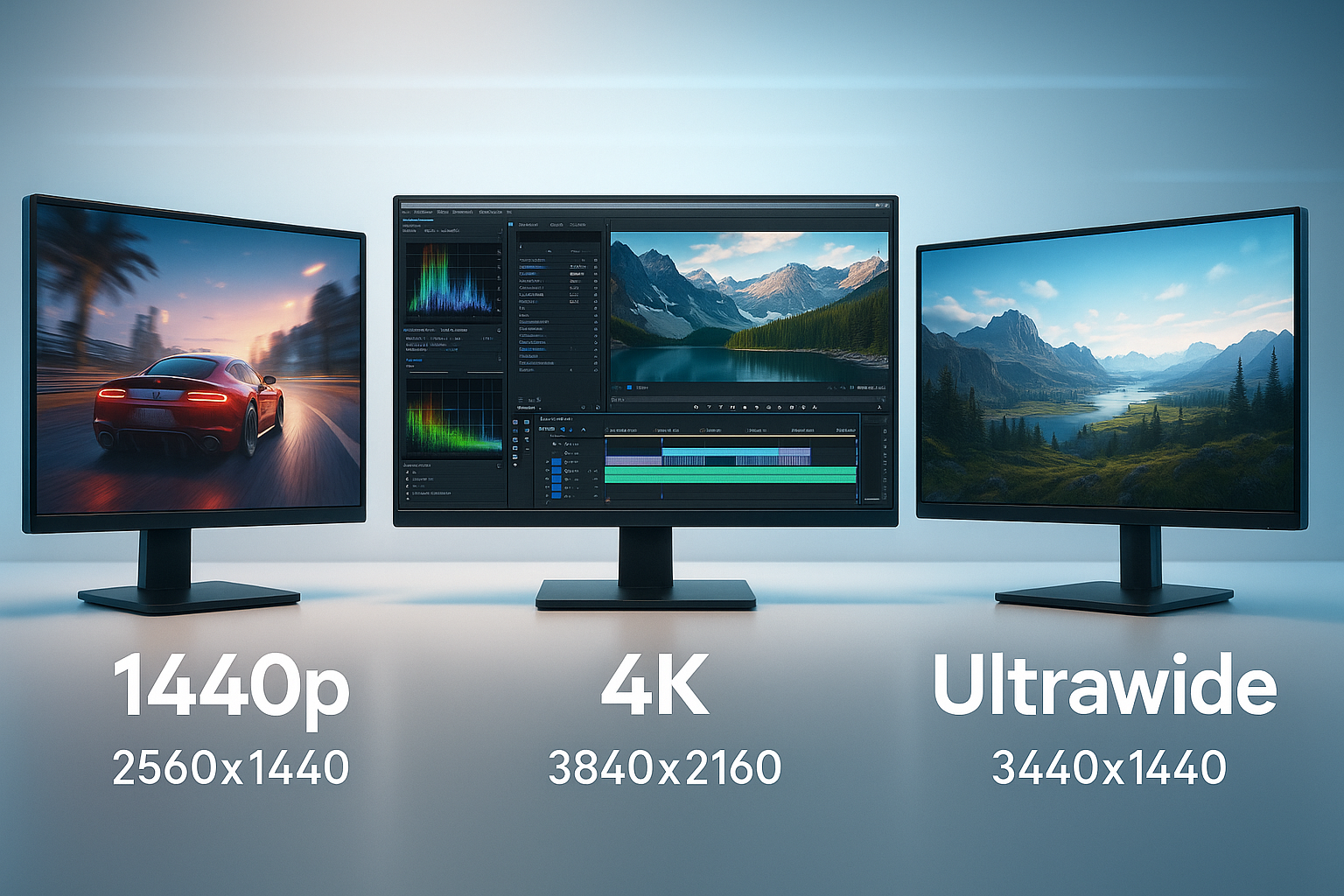
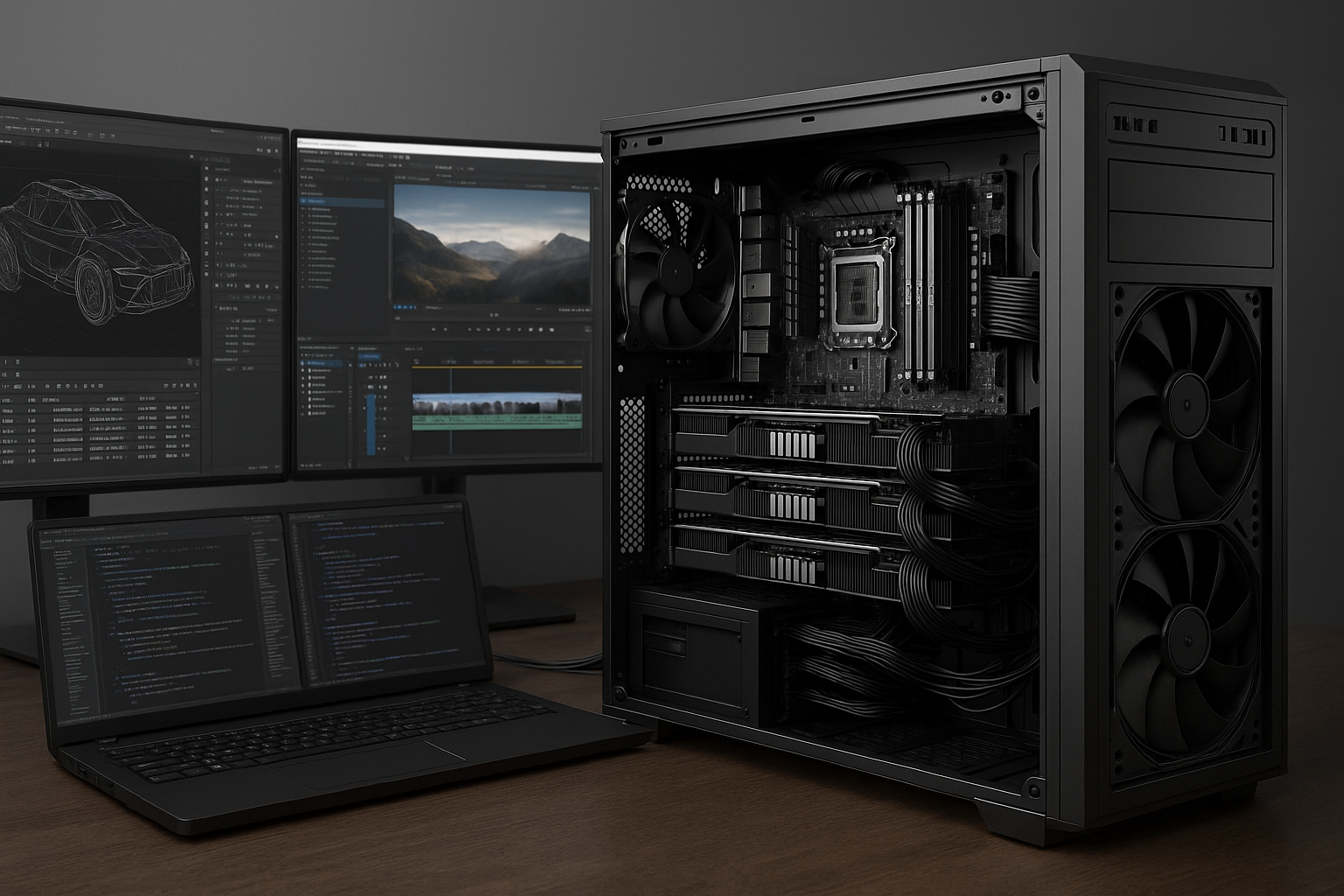
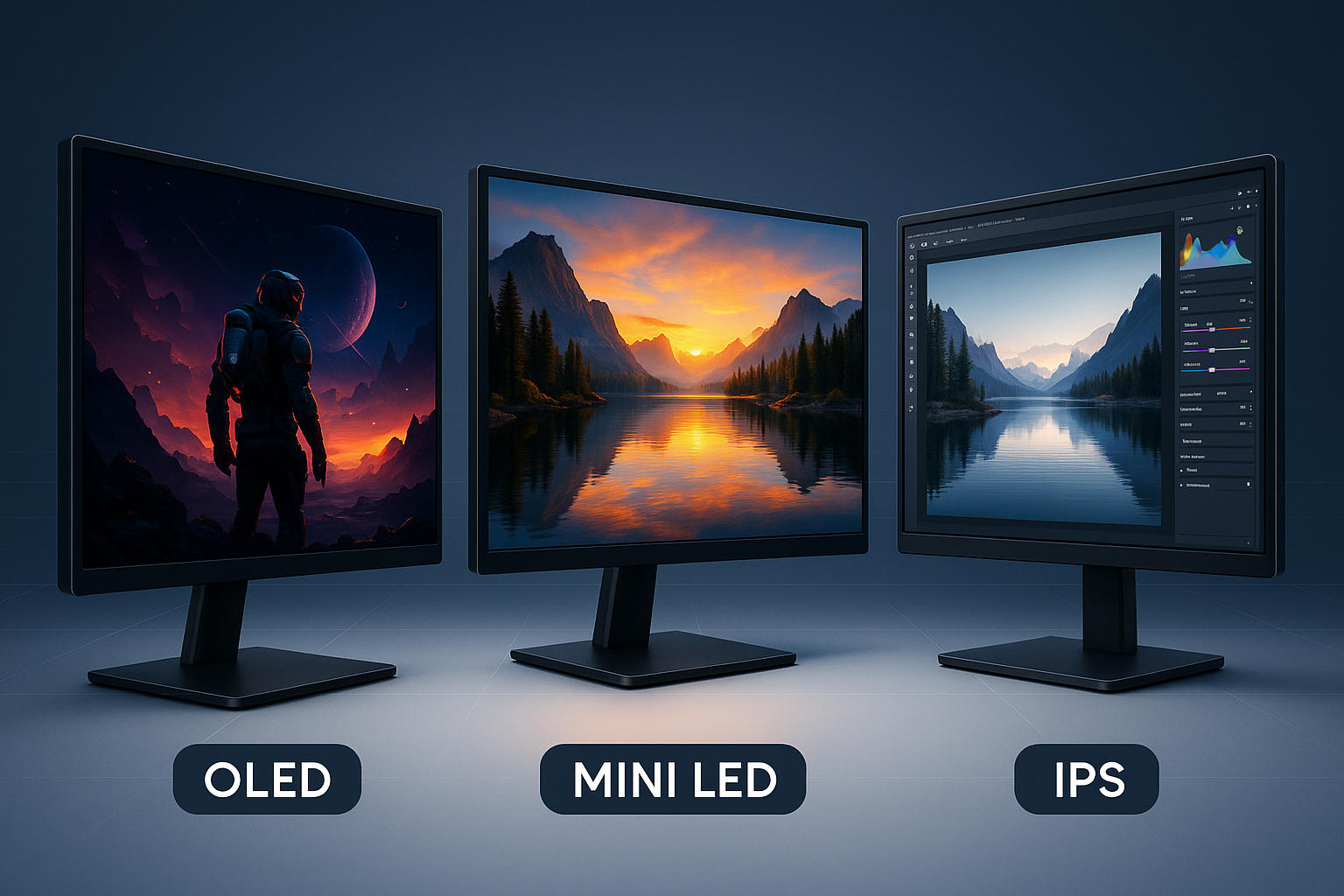
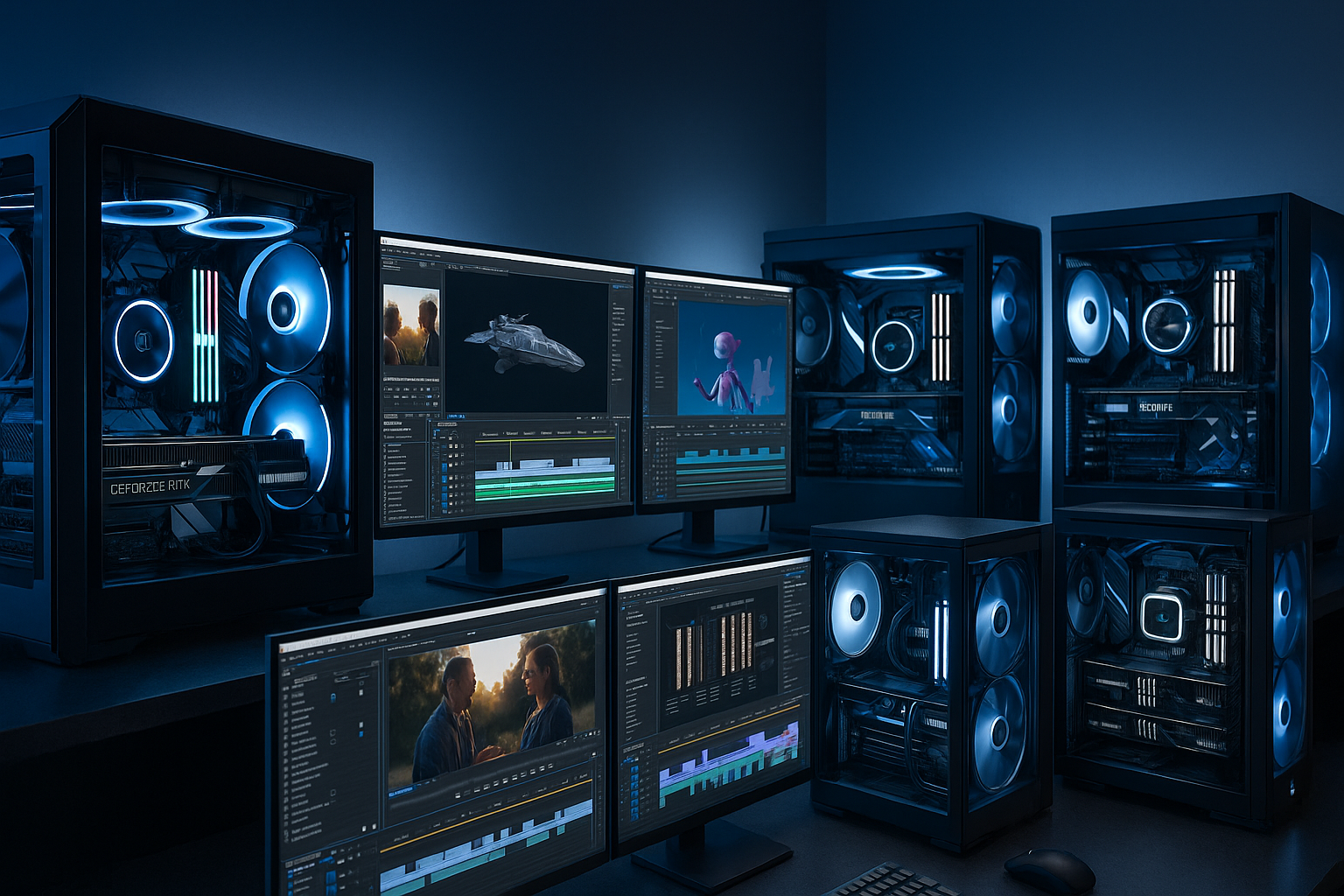
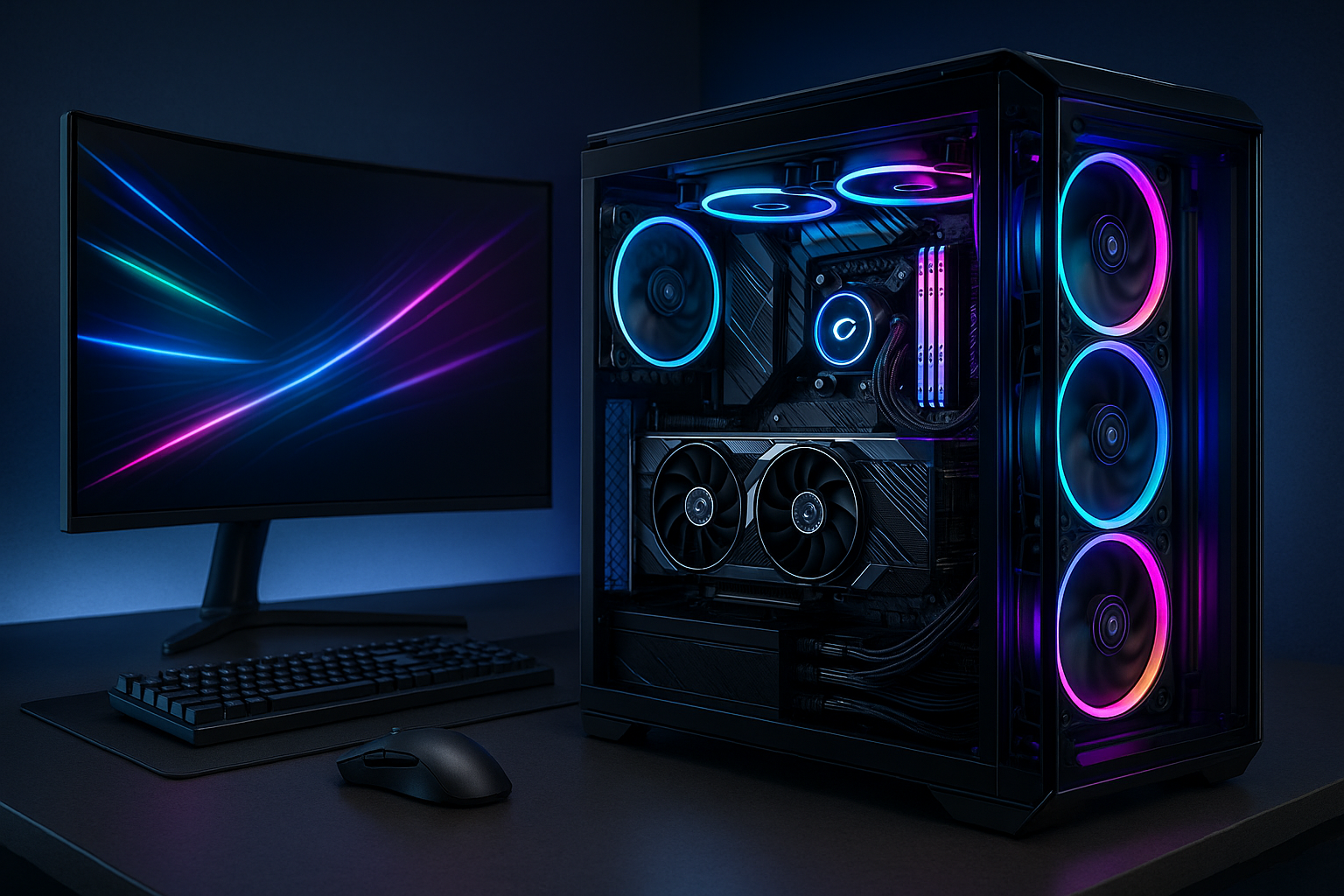
Leave a comment
Your email address will not be published. Required fields are marked *